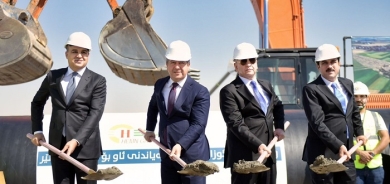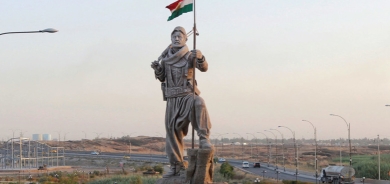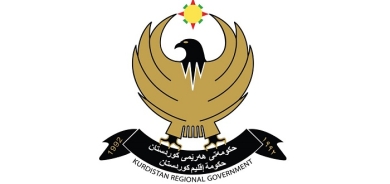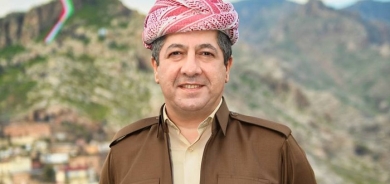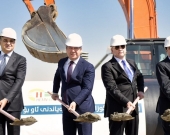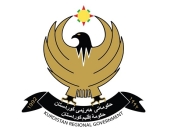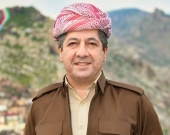Iraq's Oil Boom Contributes to Worsening Water Crisis in Drought-Hit South, Says The Guardian

International experts, as reported by The Guardian's Sara Manisera and Daniela Sala, are highlighting the detrimental effects of Iraq's oil boom on water resources in the drought-stricken southern region. The extraction of oil and the associated pollution from gas flaring are exacerbating water shortages and causing pollution in the area.
The United Nations now considers Iraq the fifth most vulnerable country to the climate crisis, with water scarcity displacing thousands of people and increasing instability. In the southern region, wetlands that once sustained entire communities have turned into muddy canals.
Mahdi Mutir, a lifelong fisherman, used to rely on the canals near Al Khora, north of Basra, to sustain his family of seven. However, due to water diversion caused by oil companies, his boat now lies stranded in the mud during the rainy season. Mutir points to the Zubayr oilfield, where an Italian company, Eni, has built a water station to support its operations, resulting in the obstruction of seasonal flooding.
Eni is not the only company implicated in exacerbating the water crisis. BP and ExxonMobil operate another nearby plant, the Qarmat Ali plant, which accounts for a significant portion of the region's daily water consumption. This plant draws water directly from the Abd Abdullah canal, which redirects freshwater from a river before it reaches the Shatt al-Arab, the main water source for Basra.
Although Eni claims that it does not use fresh water and relies on salty and polluted water from the canals, evidence from satellite images shows that the water from these canals, feeding both Eni's plant and the Qarmat Ali plant, merges and eventually supplies 35% of the water used by households in Basra through a public water treatment plant.
Iraq's impending water crisis has been well-documented, with warnings from the US Energy Information Administration as early as 2012 about the increased water needs for oil extraction. The lack of alternative water sources and the competition with agriculture and consumption has been a significant concern.
Despite these warnings, little has been done to address the issue. In 2018, Basra experienced a severe water crisis that led to hospitalizations and violent protests. The city's residents threw petrol bombs at government buildings, and security forces allegedly responded with live ammunition, resulting in several deaths.
Robert Mills, CEO of Qamar Energy and author of a 2018 report on Iraq's water injection needs, emphasizes that while the volume of water injections required by oil companies is not substantial, in water-stressed areas like Basra, it can have severe consequences. Mills suggests that oil companies operating in Basra should explore alternatives to fresh water, as seen in neighboring Saudi Arabia, which uses seawater for injection purposes.

However, discussions about a seawater supply project in Iraq have been ongoing for over a decade without progress due to budget constraints. Iraq has significantly increased its crude oil production, particularly after Russia's invasion of Ukraine in 2022, with oil exports to Europe rising by almost 40%.
While oil and gas companies have recorded record profits, Iraq's development indices resemble those of low-income countries, according to the World Bank. Foreign oil companies in Iraq are accused of neglecting their environmental impact and failing to take measures to limit pollution. Walid al-Hamid, head of southern Iraq's environmental agency, points out that most foreign oil companies in Iraq do not prioritize minimizing their environmental impact, as it is cheaper to keep polluting the environment.
In conclusion, Iraq's oil boom is exacerbating water shortages and pollution in the southern region, leading to displacement, increased instability, and ecological damage. The actions of foreign oil companies, including Eni, BP, and ExxonMobil, have contributed to the worsening water crisis. Gas flaring associated with oil extraction is also a significant concern, with Iraq's flaring volume surpassing that of several major countries combined. Despite fines imposed on the companies, many have allegedly gone unpaid, and efforts to find alternatives to fresh water have been limited.
Note: This news report is based on an article written by Sara Manisera and Daniela Sala for The Guardian on June 3, 2023.

